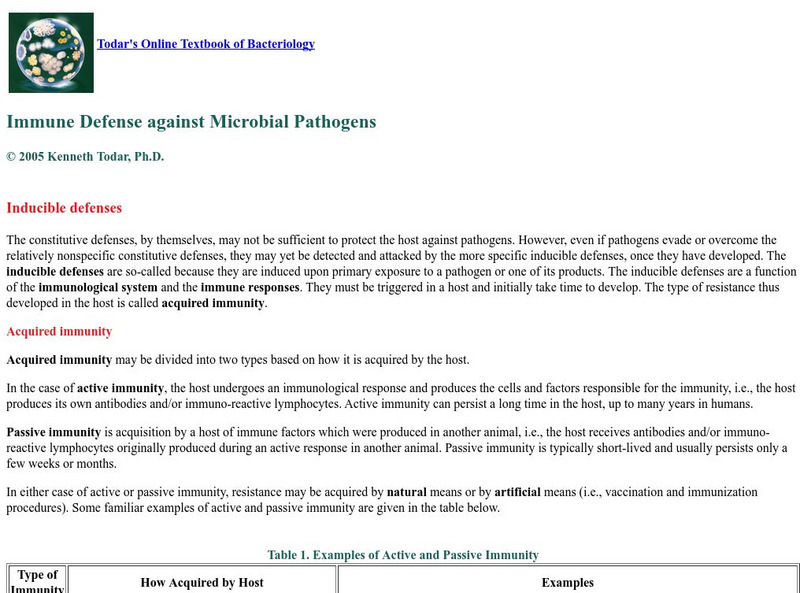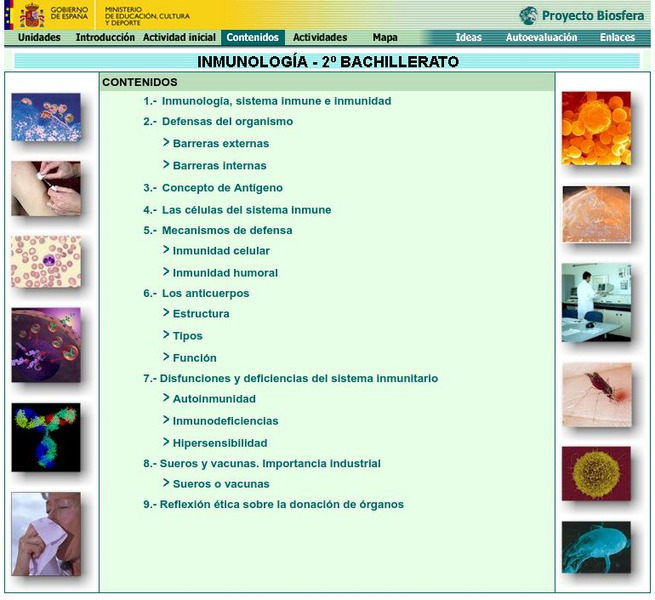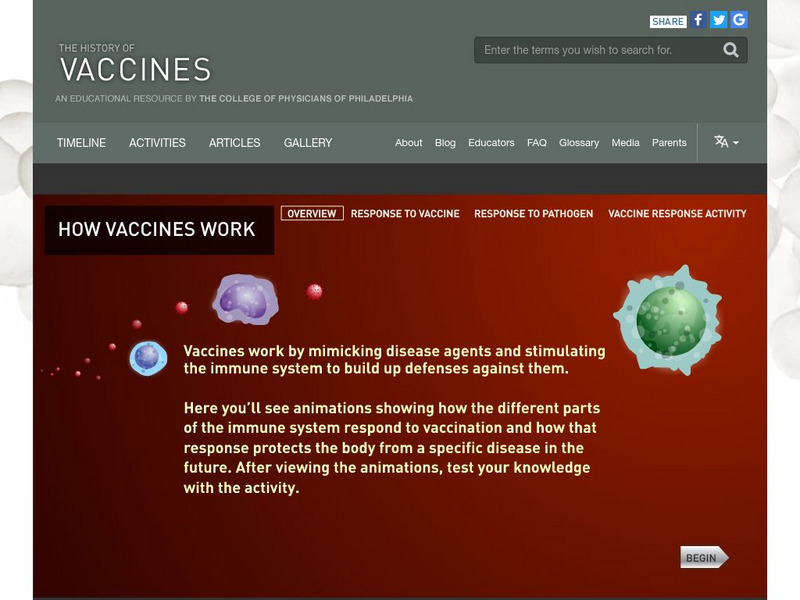CK-12 Foundation
Ck 12: Biology: Immunity
[Free Registration/Login may be required to access all resource tools.] Discusses immunity and the differences between active and passive immunity.
North Central Regional Educational Laboratory
Ncrel: Human Body Systems Resource
What do you know about the different human body systems? This site features information on each of the different systems. Students and teachers will benefit from this comprehensive resource.
Curated OER
Kids Health: How the Body Works Movies and Activities
Short, colorful movies explain each of the body's systems: skeletal, cardiovascular, digestive, urinary, respiratory, endocrine, skin, immune, muscular, and nervous. Once you've seen the movie, click on the Activity Page link for...
TeachEngineering
Teach Engineering: Viral Hijackers
Learners learn how viruses invade host cells and hijack the hosts' cell-reproduction mechanisms in order to make new viruses, which can in turn attack additional host cells. Students also learn how the immune system responds to a viral...
Textbook of Bacteriology
Todar's Online Textbook of Bacteriology: Immune Defense: Inducible Defenses
A comprehensive approach inducible defenses and how they function differently than constitutive defenses. A discussion of immunological system, the immune responses and acquired immunity, complete with bold-face vocabulary terms. A...
TeachEngineering
Teach Engineering: Hot or Not
This activity explains what a fever is and how the immune system uses it to try and protect the body against germs. The students then explore temperature further by creating a model of a thermometer and completing a temperature...
National Institute of Educational Technologies and Teacher Training (Spain)
Ministerio De Educacion: Inmunologia 2 Bachillerato
How do we defend against disease? Why should get vaccinated? Find the answers to these questions and everything about the immune system in this session. It contains 16 interactive activities.
Open Curriculum
Open Curriculum: Immune Response
This article will help students learn how to describe the lymphatic system and its functions in the immune response, explain the role of antigens, describe a humoral immune response, identify roles of different types of T cells, define...
The College of Physicians
The History of Vaccines: How Vaccines Work
Animations showing how the different parts of the immune system respond to vaccination and how that response protects the body from a specific disease in the future. After viewing the animations, students do an activity to test their...
PBS
Nova: Making Vaccines
Explore the production of six different types of vaccines. This activity is interactive, allowing you to take part in the production of the different vaccines.
TED Talks
Ted: Ted Ed: How the Food You Eat Affects Your Gut
The bacteria in our guts can break down food the body can't digest, produce important nutrients, regulate the immune system, and protect against harmful germs. Shilpa Ravella shares the best foods for a healthy gut.
BSCS Science Learning
Bscs: Bscs Helps Students, Parents, and Teachers Connect With Nature
BSCS Science Learning has developed this resource to help students, parents, and teachers get away from technology and formal learning and spend some time connecting with nature. Included are links to resources about the benefits of...
National Institute of Educational Technologies and Teacher Training (Spain)
Ministerio De Educacion: Salud Y Enfermedad
In this unit on health and disease you will learn what the disease may be due to what causes and what alterations occur in our bodies. It contains 18 interactive activities.
PBS
Pbs: Never Say Die: The Clock of Life
This site from the PBS production, Scientific American Frontier "Never Say Die", includes a section entitled "The Clock of Life". It provides a discussion of cell death through shortening of the telomere. A good class activity included.
National Institutes of Health
Niehs: Kids Pages: Crabby Kathy
Online children's story that teaches about the health effects of exposure to environmental hazards. Click on "next" at the bottom of the story to see why Kathy becomes "crabby" from all the chemicals and contaminants in her room.
Curated OER
Tak Wah Mak
Tak Wah Mak is a Canadian immunologist who discovered the gene for T-cell receptors in the human body's immune system. This discovery has played a crucial role in advancing autoimmune disease research. He explains his research here in...















